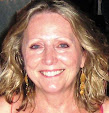Yes, a lot of people are going to
be ill. Yes, we are going to have to quarantine, practice social distancing. Yes, we should self-isolate to protect
ourselves and prevent the spread of the virus. But we are a strong community
filled with wonderful people and we can cope if we avoid being overwhelmed by the
news on television, the internet, newspapers, etc.
We must do what the medical experts
at the CDC have recommended – wash hands frequently, don’t touch your face –
especially eyes, nose and mouth, stay 6-feet away from others, avoid close
contact with people who are sick, stay home as much as possible to mitigate the
spread of the virus. The less people you come in contact with, the lower the
odds of giving or catching something.
Staying home has its challenges including
not getting enough exercise, eating too much, and feeling isolated and
depressed.
First and foremost, stock up on
essentials but PLEASE don’t hoard. Here
are some tips to avoid the negatives from taking over:
- Get a daily update from TV or the internet and then TURN OFF the Coronavirus news. Stay informed, but don’t be obsessed … same advice for the stock market.
- Talk - USE THE TELEPHONE or even better FaceTime, with friends, family (your grandkids), co-workers, and people you know who are isolated. Yes, Facebook, email, Messenger, Instagram are all good, but person-to-person is what we all need now.
- Catch up on your reading, work on those hobbies that you put aside, clean out those closets!
- Do that thing that you’ve been wanting to do but never seem to get around to it – now’s the time to explore, experiment and renew.
- Watch HAPPY programs, movies on TV or your iPad. Binge to your heart’s content!
- EXERCISE – do something every day, even walking in place. There are programs on TV, youtube, etc. I remember my dad doing the air force regime every morning. As a kid, I thought it was corny, but guess what, I’m doing jumping jacks!
More than anything, PRAY… for the
health and safety of all your loved ones, our community, our country and the
entire world, and add a special prayer
for all the health care professionals who are putting their lives at risk to
help others. May we be blessed with strength
to cope, perseverance in what we all have to do, and the miracle of a vaccine and
a speedy end to this pandemic.
God Bless You.






